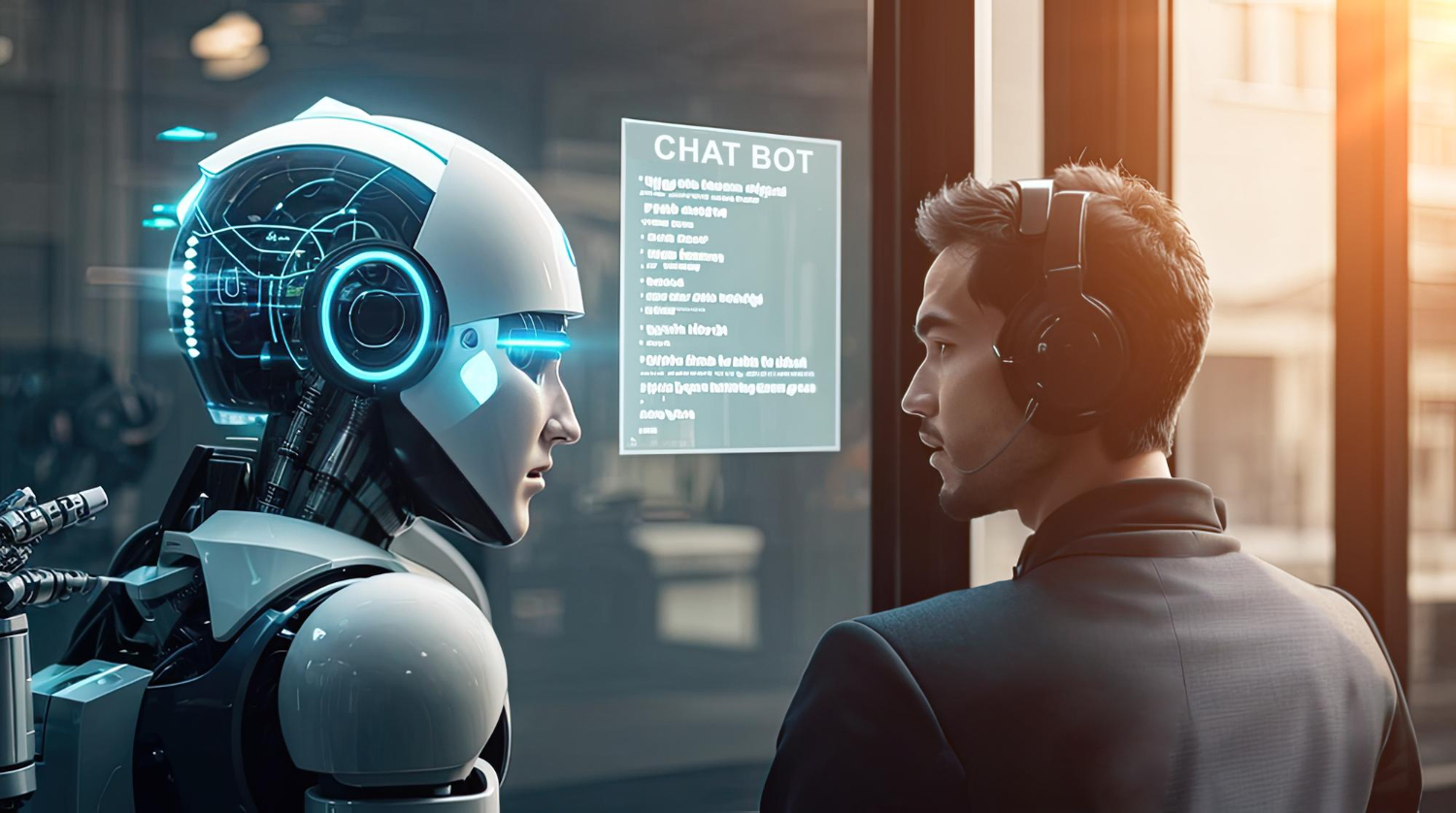As the rapid advancement of generative AI reshapes our world, the spotlight on generative AI jobs within the job market intensifies. While there are valid concerns about job displacement, I believe it’s crucial to highlight the potential for generative AI to create entirely new jobs.
Rather than solely focusing on the disruptive aspects of this technology, I see an exciting opportunity for skilled workers to emerge in roles that revolve around managing and optimizing generative AI. In this article, I’ll explore 12 new generative AI jobs that are likely to become increasingly important in the near future, emphasizing the growing importance of generative AI jobs in the modern workforce.
We strongly recommend that you check out our guide on how to take advantage of AI in today’s passive income economy.
Table of Contents
1. AI Prompt Engineer
One of the most promising generative ai jobs is that of an AI Prompt Engineer. These professionals are experts at crafting prompts that elicit specific outputs from generative AI applications like ChatGPT. Rather than being programmers, prompt engineers need strong communication skills, attention to detail, critical thinking, and data skills to effectively guide the AI.
As more businesses adopt generative AI, the demand for prompt engineers who can optimize the technology’s outputs will likely grow, making it an attractive career path for those interested in the intersection of AI and communication.
2. Generative Design Specialist
Another exciting generative ai job is the Generative Design Specialist. This role is particularly relevant in fields like architecture, product design, and engineering, where generative AI can create countless design variations. Generative Design Specialists will be responsible for guiding the AI and interpreting its outputs to achieve optimal designs.
They’ll need a deep understanding of their respective industries, as well as the ability to harness the power of generative AI to push the boundaries of what’s possible in design. As generative AI becomes more prevalent in these fields, the demand for Generative Design Specialists will likely increase, making it a promising career path for those with a passion for design and technology.
3. AI Input and Output Manager
As businesses increasingly rely on generative AI, the role of an AI Input and Output Manager will become crucial. This strategic position oversees the information being uploaded to generative AI systems and the outputs they deliver.
With concerns around data privacy, copyright, AI explainability, and AI bias, AI Input and Output Managers will be responsible for ensuring that their organization’s use of generative AI is ethical, legal, and aligned with business objectives. This generative ai job requires a unique blend of technical knowledge, business acumen, and ethical reasoning, making it a challenging but rewarding career path for those interested in shaping the future of AI in business.
4. AI Content Reviewer/Content Auditor
While generative AI can create vast amounts of content, from articles to visual designs and analysis reports, the need for human oversight remains critical. This is where AI Content Reviewers and Content Auditors come in. These generative ai jobs involve assessing the quality, accuracy, and appropriateness of AI-generated content to ensure it meets the necessary standards.
Content Reviewers and Auditors will need a keen eye for detail, strong subject matter expertise, and the ability to provide constructive feedback to refine the AI’s outputs. As the volume of AI-generated content continues to grow, the demand for these roles will likely increase, making them a stable and rewarding career path for those with a passion for quality control and content creation.
5. AI Trainer
Another promising generative ai job is that of an AI Trainer. These professionals specialize in “teaching” and refining AI models by feeding them data and fine-tuning their outputs to ensure accuracy and relevance. AI Trainers will need a deep understanding of machine learning principles, as well as domain expertise in the specific industry or application they’re working with.
As generative AI models become more sophisticated and specialized, the demand for skilled AI Trainers who can optimize their performance will likely grow, making it an exciting career path for those with a passion for AI and a desire to shape its development.
6. AI Maintenance Engineer
Just like any complex system, generative AI models require regular maintenance and upkeep. This is where AI Maintenance Engineers come in. These professionals are responsible for updating models, ensuring systems run efficiently, and troubleshooting issues as they arise.
As businesses become increasingly reliant on generative AI, the role of AI Maintenance Engineers in generative AI jobs will become even more critical. They’ll need a strong foundation in computer science, as well as problem-solving skills and the ability to work under pressure. For those with a passion for technology and a desire to keep systems running smoothly, a career as an AI Maintenance Engineer in the field of generative AI jobs could be a fulfilling and stable path.
7. AI Security Specialist
As generative AI advances, so too do the potential security risks associated with its use, highlighting the importance of generative AI jobs in cybersecurity. From sophisticated phishing attacks to malware, the cybersecurity landscape is becoming increasingly complex. This is where AI Security Specialists come in. These professionals are responsible for defending systems against the malicious use of AI and potentially harnessing AI to mitigate threats.
They’ll need a deep understanding of both AI and cybersecurity principles, as well as the ability to stay ahead of emerging threats. As businesses become more reliant on generative AI, the demand for skilled AI Security Specialists in generative AI jobs will likely grow, making it a challenging but rewarding career path for those with a passion for technology and security.
8. AI Instructor/AI Literacy Educator
As generative AI becomes more prevalent in our daily lives, the need for AI literacy will become increasingly important, creating new opportunities in generative AI jobs. This is where AI Instructors and AI Literacy Educators come in. These professionals are responsible for teaching individuals about the workings, benefits, and challenges of AI, helping to bridge the gap between technology and the general public.
They’ll need strong communication skills, as well as the ability to break down complex concepts into easily digestible lessons. As the demand for AI literacy grows, so too will the demand for skilled AI Instructors and Educators in generative AI jobs, making it a promising career path for those with a passion for teaching and technology.
9. AI Ethicist/AI Ethics Officer
As generative AI becomes more powerful, the need for ethical oversight becomes increasingly critical. This is where AI Ethicists and AI Ethics Officers come in. These professionals are responsible for ensuring that AI systems are developed and used in ways that are ethical, unbiased, and socially responsible.
They’ll need a deep understanding of both AI and ethics, as well as the ability to navigate complex moral dilemmas. As businesses and governments grapple with the ethical implications of generative AI, the demand for skilled AI Ethicists and Ethics Officers will likely grow, making it a challenging but deeply meaningful career path for those with a passion for technology and ethics.
10. AI Compliance Manager/AI Compliance Officer
Closely related to the role of AI Ethicist is the AI Compliance Manager or AI Compliance Officer. These professionals are responsible for ensuring that an organization’s use of generative AI complies with relevant laws, regulations, and industry standards.
They’ll need a deep understanding of both AI and legal frameworks, as well as the ability to develop and implement compliance strategies. As the regulatory landscape around AI evolves, the demand for skilled AI Compliance Managers and Officers will likely grow, making it a stable and rewarding career path for those with a passion for technology and law.
11. AI Personality Designer
As generative AI tools become more prevalent, the need for unique and engaging AI personalities will become increasingly important. This is where AI Personality Designers come in. These professionals are responsible for creating likable and relatable personalities for generative AI entities, helping to make interactions with these tools feel more human-like.
They’ll need strong creative skills, as well as an understanding of human psychology and the ability to craft compelling narratives. As the market for generative AI tools grows, so too will the demand for skilled AI Personality Designers, making it an exciting career path for those with a passion for storytelling and technology.
12. Custom AI Solution Developer
While many generative AI applications are broad in scope, there’s a growing demand for custom, niche solutions tailored to specific industry needs. This is where Custom AI Solution Developers come in. These professionals are responsible for creating bespoke, internal models built on publicly available frameworks, helping businesses harness the power of generative AI to solve unique challenges.
They’ll need a deep understanding of both AI and their specific industry, as well as the ability to collaborate with stakeholders to develop effective solutions. As more businesses seek to integrate generative AI into their operations, the demand for skilled Custom AI Solution Developers will likely grow, making it a promising career path for those with a passion for problem-solving and technology.
How to Get a Generative AI Jobs: Best Tips
The rise of generative AI has opened up a new frontier in the job market, offering exciting opportunities for those with the right skills and mindset. If you’re looking to secure a generative AI job, here are some tips to help you stand out:
- Stay Informed: Keep up with the latest trends and developments in generative AI by following industry news, attending conferences, and participating in online forums. This will not only expand your knowledge but also help you identify emerging job opportunities.
- Build Technical Skills: Develop a strong foundation in programming languages commonly used in AI, such as Python or R. Familiarize yourself with AI frameworks like TensorFlow or PyTorch, and gain hands-on experience with machine learning algorithms and data manipulation.
- Understand AI Ethics: As generative AI jobs often involve working with sensitive data and making impactful decisions, it’s crucial to have a solid understanding of AI ethics, including issues related to bias, privacy, and transparency.
- Focus on Communication: The ability to communicate complex AI concepts to non-technical stakeholders is invaluable. Enhance your communication skills to effectively convey the potential and limitations of generative AI in various contexts.
- Get Creative: Generative AI requires a blend of technical skills and creativity. Engage in projects that challenge you to think outside the box and apply AI in innovative ways.
- Network: Connect with professionals in the field through LinkedIn, industry events, and online communities. Networking can provide valuable insights, mentorship, and potential job leads.
- Showcase Your Work: Build a portfolio of projects that demonstrate your proficiency in generative AI. Include case studies, code repositories, and any published articles or presentations to highlight your expertise.
- Pursue Specialization: Consider specializing in a niche area of generative AI, such as natural language processing, computer vision, or AI ethics. This can help you stand out in a competitive job market.
- Stay Adaptable: The field of generative AI is constantly evolving, so it’s important to be adaptable and open to learning new technologies and approaches as they emerge.
By following these tips and continuously honing your skills, you can position yourself as a strong candidate for generative AI jobs and contribute to shaping the future of this exciting field.
Conclusion
As generative AI continues to evolve and shape our world, it’s clear that new generative AI job opportunities will emerge alongside the technology. From AI Prompt Engineers to AI Personality Designers, these generative AI jobs will require a unique blend of technical skills, creativity, and ethical reasoning. While it’s important to acknowledge the potential for job displacement, it’s equally important to recognize the exciting possibilities that generative AI presents for those willing to adapt and learn.
By embracing these emerging roles, we can not only harness the power of generative AI but also shape its development in ways that benefit society as a whole. The future of work is changing, and those who are prepared to evolve with it will be well-positioned to thrive in the era of generative AI jobs.

We strongly recommend that you check out our guide on how to take advantage of AI in today’s passive income economy.




